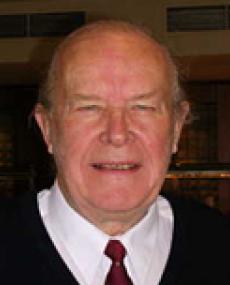
Anti Apartheid activist, founder member of the National Committee for Liberation, founder of the African Resistance Movement (ARM).
James Randolph Vigne was born in 1928 in Kimberley and grew up in Port-Elizabeth. He went to school at St Andrew’s College in Grahamstown where he enjoyed a spell as head boy at the age of 13 in 1941. That same year he joined the Van Riebeeck Society. He did his higher education at Wadham College, Oxford, after which he returned to Cape Town and served as English editor at Maskew Miller’s until 1964.
Vigne played an important role in the radicalization of the Liberal Party in the late 1950s and early 1960s. He became a founder member of the underground National Committee for Liberation which was established in 1960 by members of the Liberal Party. Later, the NCL was renamed the African Resistance Movement (ARM). The organization focused on carrying out a campaign of sabotage against the apartheid regime’s infrastructure. In 1961, Vigne stood for parliament to advocate for true democracy and universal suffrage, and in the same year helped Nelson Mandela prepare for the Congress Alliance’s ”May Stay-at-Home” campaign. He actively campaigned against the apartheid Bantustan (homelands) policy in the Transkei, and maintained close relations with the Pan-Africanist Congress (PAC) and its leader Robert Mangaliso Sobukwe particularly around the organization’s Positive Action Campaign in 1960. He was also writer and editor for journals such as Contact and New African, which he co-founded in 1962.
As a result of anti apartheid political activities, his life and that of his family were placed at risk as the apartheid security police began harassing him. In 1963 he was arrested, detained and brought to trial under the emergency regulations of that year in the Transkei. He was charged with holding an illegal meeting with the delegates of the Transkei Democratic Party, which he assisted in forming, in conjunction with the king of the AbaThembu clan king Sabata Dalindyebo. That same year he was also banned under the Suppression of Communism Act.
When activities of the ARM were exposed, Vigne evaded arrest in 1964 and fled South Africa without a passport to Britain. Shortly afterwards his family home was burnt down. He spent 30 years in exile travelling to various countries in Africa, and to Britain and the United Nations campaigning against the apartheid government in South Africa and pushing for the liberation of South West Africa (Namibia).
Vigne served as the chairperson for 22 years, and later as secretary of the Namibian Support Committee, a pro-South West African People’s Organisation (SWAPO) support committee. As a member of the Anti-Apartheid Movement, he also worked closely with Canon L John Collins of the International Defence and Aid Fund (IDAF), bringing many cases of South African and Namibian activists to the IDAF for legal defence and assistance for their families.
He was also the member of high-profile organisations such as the Royal Institute for International Affairs (Chatham House) and the United Nations Association. In the 1980s he went around reporting on South West African People’s Organization (SWAPO) offices in Angola, Tanzania and Zambia. He returned to South Africa in 1990, where he continued to research, write and lecture on the history and politics of South Africa and Namibia, and published books. Vigne became a fellow of the Society of Antiquaries of London, and in 2010 he was a recipient of the Order of Luthuli in Silver.
Amongst some of his publications are, Guillaume Chenu de Chalezac, the ‘French boy’ at the Cape of Good Hope, (1993), Liberals Against Apartheid: The History of the Liberal Party of South Africa (1997) and TheSouth African Letters of Thomas Pringle (2011).